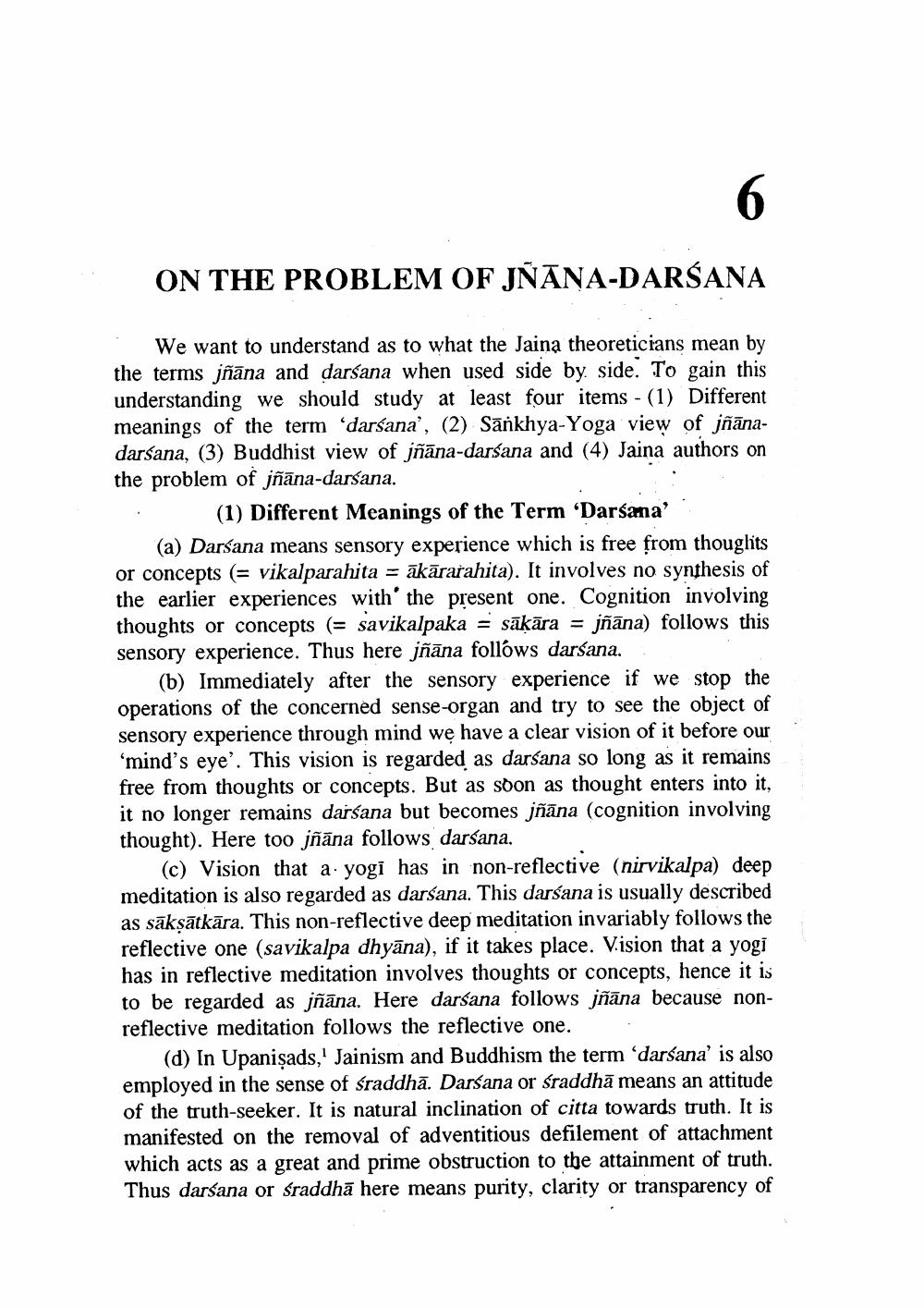________________
ON THE PROBLEM OF JNĀNA-DARŠANA
We want to understand as to what the Jaina theoreticians mean by the terms jñāna and darśana when used side by side. To gain this understanding we should study at least four items - (1) Different meanings of the term 'darśana', (2) Sāńkhya-Yoga view of jñānadarśana, (3) Buddhist view of jñāna-darśana and (4) Jaina authors on the problem of jñāna-darśana.
(1) Different Meanings of the Term 'Darsana' - (a) Darsana means sensory experience which is free from thoughits or concepts (= vikalparahita = ākārařahita). It involves no synthesis of the earlier experiences with the present one. Cognition involving thoughts or concepts (= savikalpaka = sākāra = jñāna) follows this sensory experience. Thus here jñāna follows darśana.
(b) Immediately after the sensory experience if we stop the operations of the concerned sense-organ and try to see the object of sensory experience through mind we have a clear vision of it before our ‘mind's eye'. This vision is regarded as darśana so long as it remains free from thoughts or concepts. But as soon as thought enters into it, it no longer remains darśana but becomes jñāna (cognition involving thought). Here too jñāna follows darśana.
(c) Vision that a yogi has in non-reflective (nirvikalpa) deep meditation is also regarded as darśana. This darśana is usually described as sākṣātkāra. This non-reflective deep meditation invariably follows the reflective one (savikalpa dhyāna), if it takes place. Vision that a yogi has in reflective meditation involves thoughts or concepts, hence it is to be regarded as jñāna. Here darśana follows jñāna because nonreflective meditation follows the reflective one.
(d) In Upanisads' Jainism and Buddhism the term 'darśana' is also employed in the sense of śraddhā. Darsana or sraddhā means an attitude of the truth-seeker. It is natural inclination of citta towards truth. It is manifested on the removal of adventitious defilement of attachment which acts as a great and prime obstruction to the attainment of truth. Thus darśana or sraddhā here means purity, clarity or transparency of




